News in Brief
-
 Agriculture
AgricultureSuperbugs take flight from cattle farms
Winds can carry antibiotics and drug-resistant bacteria from cattle farms to downwind communities.
By Beth Mole -
 Physics
PhysicsHow blueshift might beat redshift
Even though the expanding universe makes light redder, light emitted by collapsing stars and dust clouds could appear unusually blue.
By Andrew Grant -
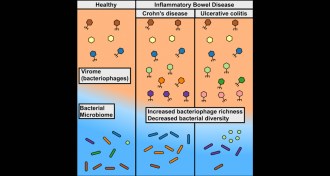 Life
LifeWhen bacteria-killing viruses take over, it’s bad news for the gut
A rise in some bacteria-killing viruses in the intestines may deplete good bacteria and trigger inflammatory bowel diseases.
-
 Environment
EnvironmentAtrazine’s path to cancer possibly clarified
Scientists have identified a cellular button that the controversial herbicide atrazine presses to promote tumor development.
By Beth Mole -
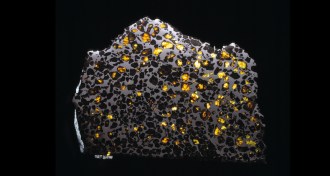 Planetary Science
Planetary ScienceYoung asteroids generated long-lasting magnetism
Pockets of iron and nickel in meteorites suggest that asteroids in the early solar system produced magnetic fields for much longer than once thought.
-
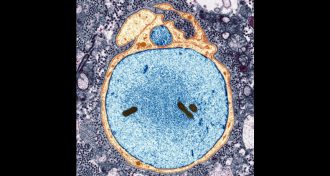 Health & Medicine
Health & MedicineImmune system ‘reset’ may give MS patients a new lease on life
With the help of their own stem cells, MS patients can stop the disease in its tracks in many cases.
By Nathan Seppa -
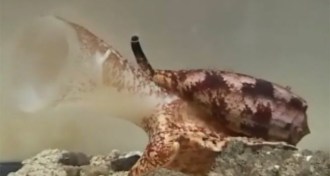 Animals
AnimalsCone snail deploys insulin to slow speedy prey
Fish-hunting cone snails turns insulin into a weapon that drops their prey’s blood sugar and eases capture.
By Susan Milius -
 Life
LifeHuman evolution tied to a small fraction of the genome
Natural selection has concentrated on a small portion of the human genome, and mostly not on genes themselves.
-
 Climate
Climate2014 was Earth’s warmest year on record
Record-hot 2014 marks the 38th consecutive year of temperatures above the 20th century’s average.
By Beth Mole -
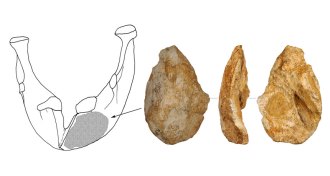 Archaeology
ArchaeologyAncient bone hand ax identified in China
People may have dug up roots with the 170,000-year-old bone tool, the first found in East Asia.
By Bruce Bower -
 Environment
EnvironmentMore toxic chemicals found in oil and gas wastewater
High levels of ammonium and iodide found in wastewater from oil and gas exploration can harm aquatic life and form dangerous byproducts in tap water.
By Beth Mole -
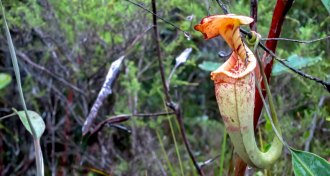 Plants
PlantsTricky pitcher plants lure ants into a false sense of security
Carnivorous pitcher plants exploit social lives of ants as scouts escape and inadvertently lead nest mates to death trap.
By Susan Milius